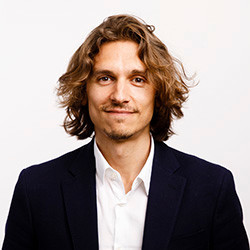IFAD President in Germany stresses “importance to invest in building long-term resilience” in rural communities
IFAD Asset Request Portlet
Agrégateur de contenus
IFAD President in Germany stresses “importance to invest in building long-term resilience” in rural communities
01 mars 2023Berlin, 1 March 2023 –During his first visit to Germany since taking office five months ago, Alvaro Lario, President of the UN’s International Fund for Agricultural Development (IFAD), commended Germany’s leadership throughout the recent global food, energy and climate crises, and stressed that “it is vital that we scale up our response, not just with emergency aid, but also by investing in building long-term resilience in the world’s most vulnerable populations.”
“Every dollar spent on building resilience can save up to 10 dollars in emergency aid in the future,” said Lario, referring to the investments used to build the capacity of small-scale farmers who are often among the hardest hit because they lack the resources to cope with climate events, conflict, inflation and supply-chain interruptions.
Lario praised Germany’s commitment to working towards a world free of hunger and poverty while noting that levels of hunger, malnutrition and poverty are expected to rise this year, in part due to the effects of the war in Ukraine.
Feminist lens for rural development
The President of IFAD met with Svenja Schulze, Federal Minister for Economic Cooperation and Development, who presented Germany’s new Feminist Development Policy and outlined the critical role woman play in agriculture and rural development.
“Women are strong actors and agents of change. They have knowledge which should be used for the benefit of all of society, for example when it comes to adaptation to climate change. This is particularly true for rural development. Women are the ones who plant the fields. They know which plants are best able to resist drought and heat. They know how intercropping can preserve soil fertility. If women had the same access to agricultural inputs as men, yields could increase by up to 30 per cent. Economically and socially empowered women benefit their entire families – through more education, better nutrition, and better health,” said Minister Schulze.
“We share Germany’s approach to address the root causes of inequalities between women and men, such as social norms and religious beliefs, as well as policy and legal constraints that prevent women and girls from thriving and reaching their potential,” said the President of IFAD, the only UN organization that focuses exclusively on rural development. “IFAD’s focus on gender equality through all of its supported projects and programmes, demonstrates the tremendous impact women can have. With increased investment, this can and should be scaled up and applied more widely.”
Advocating for rural populations among parliamentarians and civil society
“We work with local communities in project design and implementation. Our model of community-led development gives rural people the tools to take charge of their own futures,” Lario told Members of the Bundestag, Germany’s Parliament, during today’s hearing of the Committee on Economic Cooperation and Development.
The President of IFAD argued for increased investments in rural populations, which are now desperately needed to build resilience, to help farmers adapt to climate change and restore rural livelihoods impacted by recent global crises. He reminded members of parliament that “every euro from Germany delivers a pro-poor investment worth six euros,” referring to IFAD’s capacity to leverage funding.
In a recent report from the Center for Global Development, IFAD ranked number one overall in the quality of development assistance provided. The report compares quality performance across 49 of the largest bilateral and multilateral aid and development agencies.
Lario emphasized that supporting small-scale food producers, especially women, to adapt to climate change is as essential to feed the world – they produce one-third of the world's food – as it is to preserve global stability and biodiversity due to the strong connection between food security, climate adaptation and stability.
During his visit, the President of IFAD also participated in a roundtable with leading German development non-governmental organizations such as Welthungerhilfe, Deutsche Stiftung Weltbevölkerung and international organization Global Citizen. He discussed sustainable rural development approaches with future development cooperation practitioners studying at the Centre for Rural Development (SLE) of the Humboldt-University of Berlin.
Note to editors:
Since the establishment of IFAD in 1977, Germany has contributed a total of US$751 million in core funding to IFAD’s work on climate action, gender equality, food and nutrition security, working towards equitable and sustainable food systems. In addition, Germany has provided loans of up to €800 million through KfW, Germany’s public development bank. With its latest contributions, Germany has also provided an additional €175 million in supplementary funds to support inclusive sustainable value chain development, climate adaptation, and youth employment.
Read about IFAD’s comparative advantage here and IFAD President’s most recent blog here
Press Release No.: IFAD/18/2023
IFAD is an international financial institution and a United Nations specialized agency. Based in Rome – the United Nations food and agriculture hub – IFAD invests in rural people, empowering them to reduce poverty, increase food security, improve nutrition and strengthen resilience. Since 1978, we have provided more than US$24 billion in grants and low-interest loans to fund projects in developing countries. A wide range of photographs and broadcast-quality video content of IFAD’s work in rural communities are available for download from our Image Bank.
